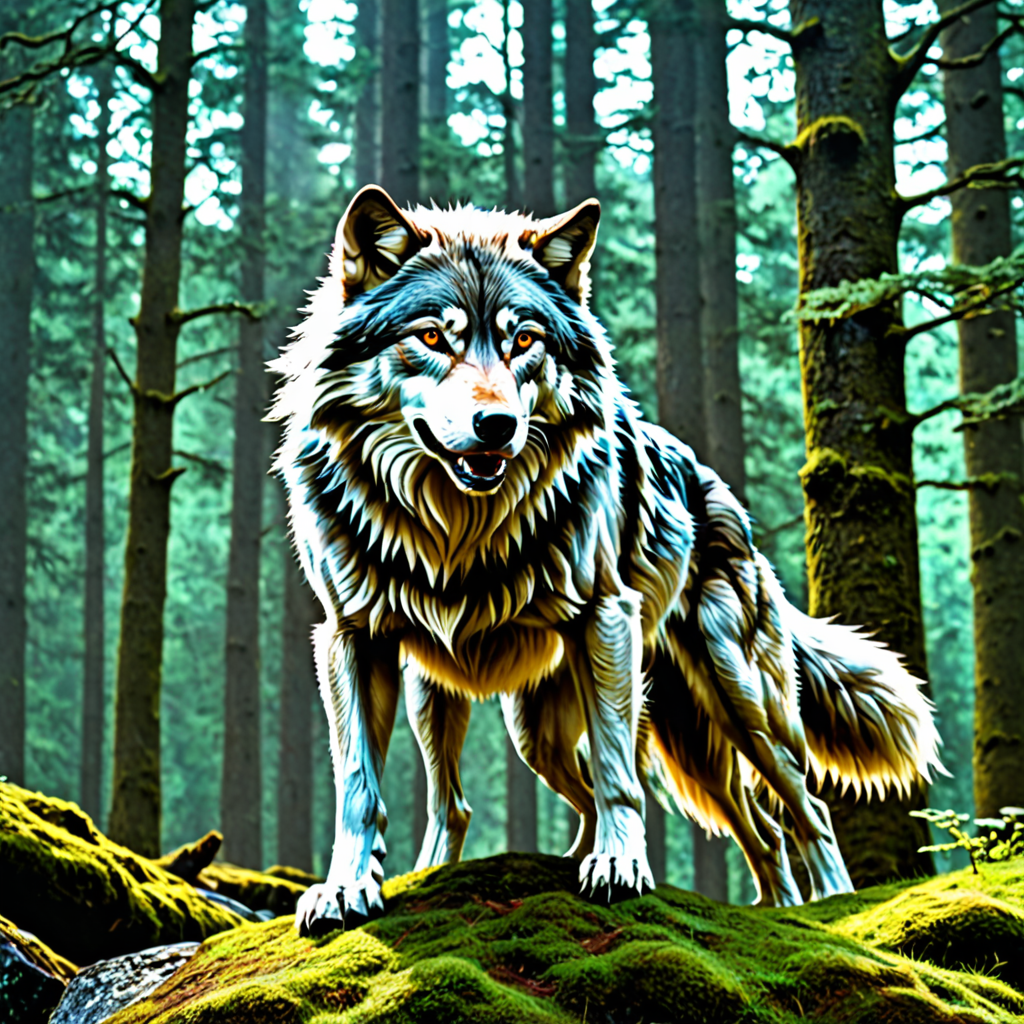The Symbolism of the Wolf in Norse Mythology
Wolves hold significant symbolic value in Norse mythology, playing various roles that reflect different aspects of the natural world and the characteristics esteemed by the ancient Norse people. Let’s delve into the symbolic meanings attributed to wolves in Norse mythology.
1. Fenrir: The Monstrous Wolf
In Norse mythology, Fenrir, also known as Fenrisúlfr, is a colossal wolf and one of Loki’s offspring. Prophecies foretold that he would wreak havoc during Ragnarök, the Norse apocalypse. Fenrir represents chaos, destruction, and the untamable forces of nature. The gods attempted unsuccessfully to bind Fenrir multiple times, demonstrating the enduring struggle between order and chaos in the Norse cosmos.
2. Sköll and Hati: The Wolfskínd
Sköll and Hati are two wolves who pursued the sun and moon throughout the skies, perpetually chasing these celestial bodies. Sköll chases the sun while Hati races after the moon, embodying the eternal cycle of day and night. Their relentless pursuit symbolizes the inevitability of cosmic events and the constant struggle between light and darkness.
3. Geri and Freki: Odin’s Companions
In Norse mythology, the god Odin is accompanied by two wolves named Geri and Freki, whose names translate to “Greedy” and “Ravenous.” These wolves symbolize Odin’s connection to war, battle, and the valor of fallen warriors. They are also associated with the idea of sacrifice, as Odin receives the souls of fallen heroes in Valhalla.
4. Wolves as Guardians and Protectors
Wolves were also seen as protective entities in Norse culture. Viking warriors often adorned themselves with wolf imagery on their armor and weapons to invoke the qualities of strength, courage, and cunning. The relationship between humans and wolves in Norse mythology highlights the mutual respect and admiration between the two species.
In conclusion, the symbolism of wolves in Norse mythology encompasses a range of themes, including chaos, fate, loyalty, and protection. These majestic creatures held a revered place in Norse culture, reflecting the values and beliefs of the ancient Norse people.
FAQs about the Symbolism of the Wolf in Norse Mythology
What is the significance of wolves in Norse mythology?
Wolves hold great symbolic importance in Norse mythology, often linked to traits like cunning, strength, and ferocity. They are closely associated with powerful entities such as the god Odin and the monstrous wolf Fenrir.
How are wolves connected to the god Odin?
In Norse mythology, Odin is often depicted with wolves. He has two wolf companions named Geri and Freki, representing the qualities of greed and ravenousness. Odin’s association with wolves symbolizes wisdom, warfare, and the unpredictable nature of the wild.
Who is Fenrir, and what does he symbolize?
Fenrir is a monstrous wolf in Norse mythology, foretold to bring about the downfall of the gods during Ragnarok, the end of the world. Fenrir symbolizes chaos, destruction, and the uncontrollable forces of nature.
Do wolves have any positive symbolism in Norse mythology?
Despite their association with danger and destruction, wolves also embody positive attributes in Norse mythology. They represent loyalty, teamwork, and resilience, as seen in the story of the divine wolf siblings Skoll and Hati who chase the sun and moon.
Are there any rituals or practices involving wolves in Norse mythology?
While specific rituals involving wolves are not


